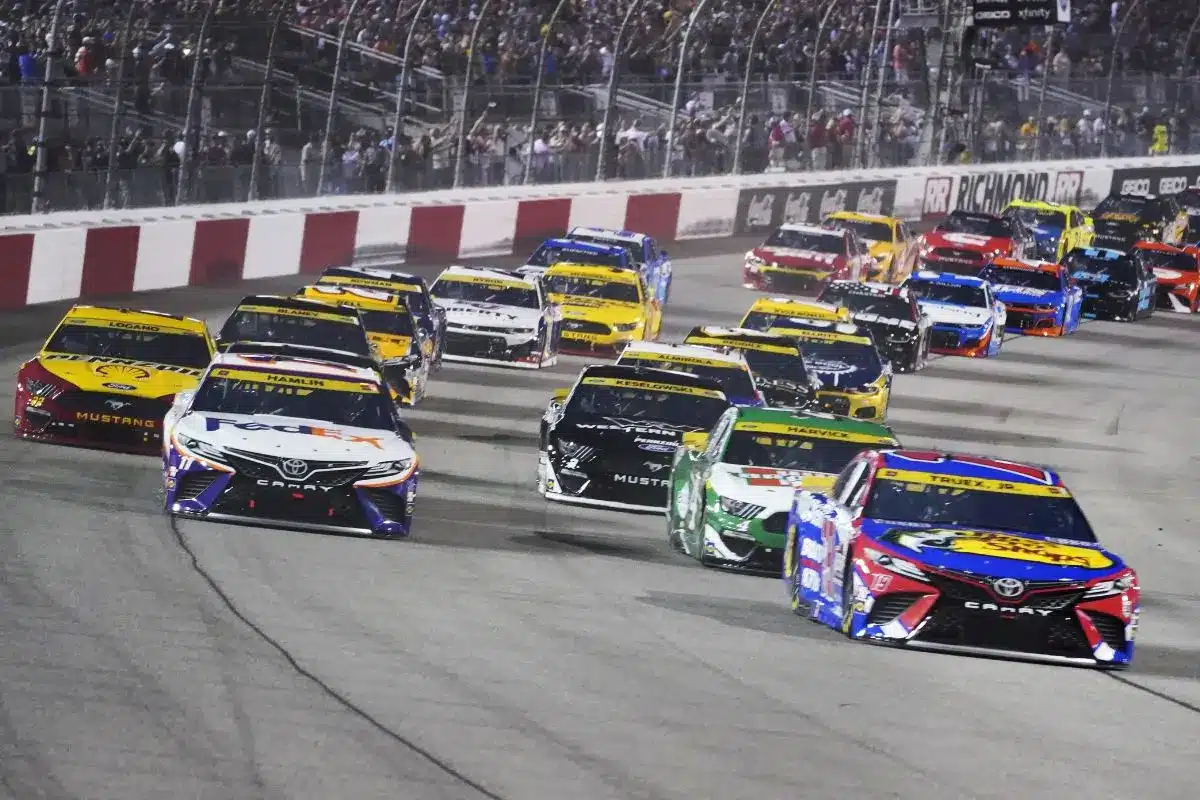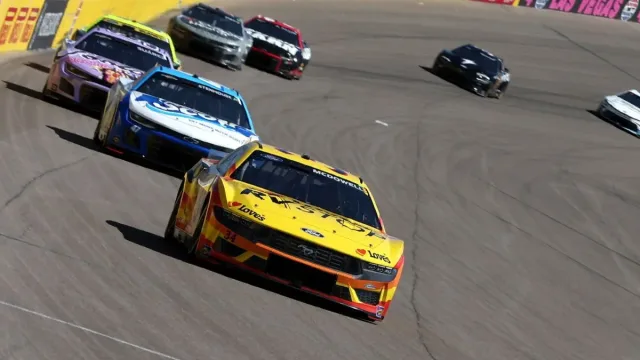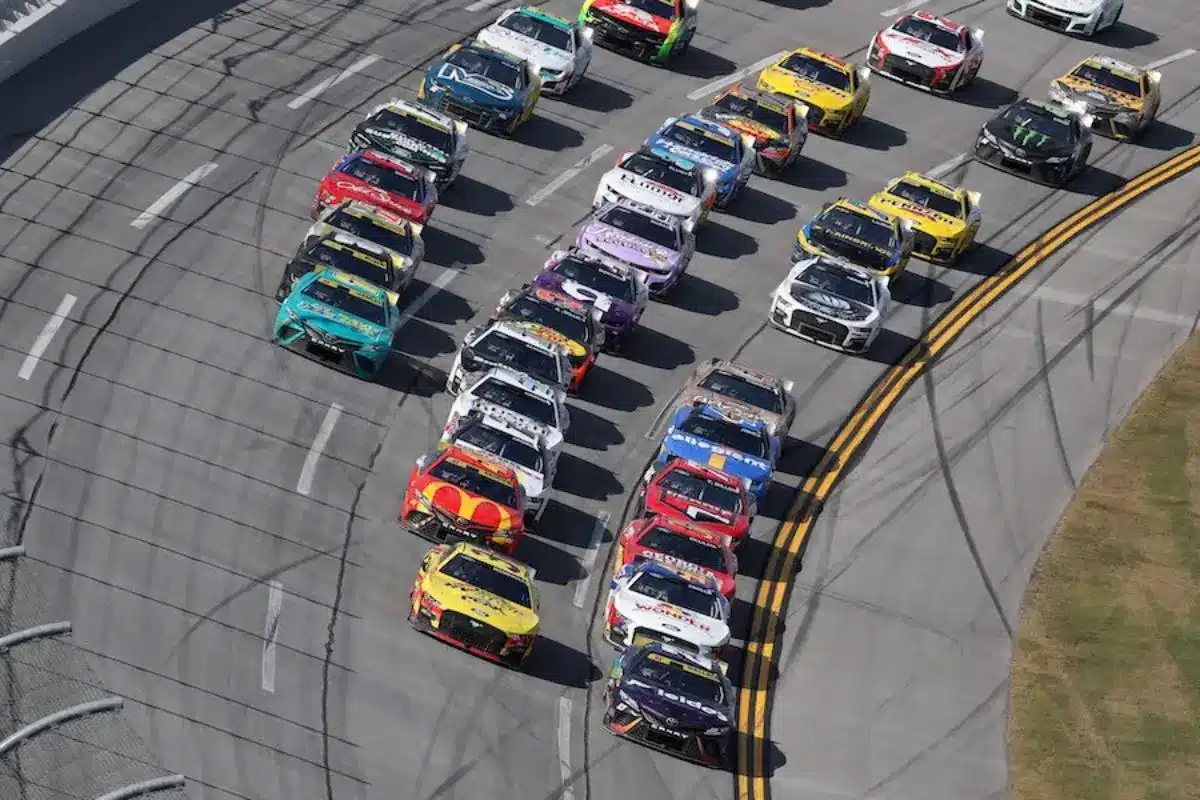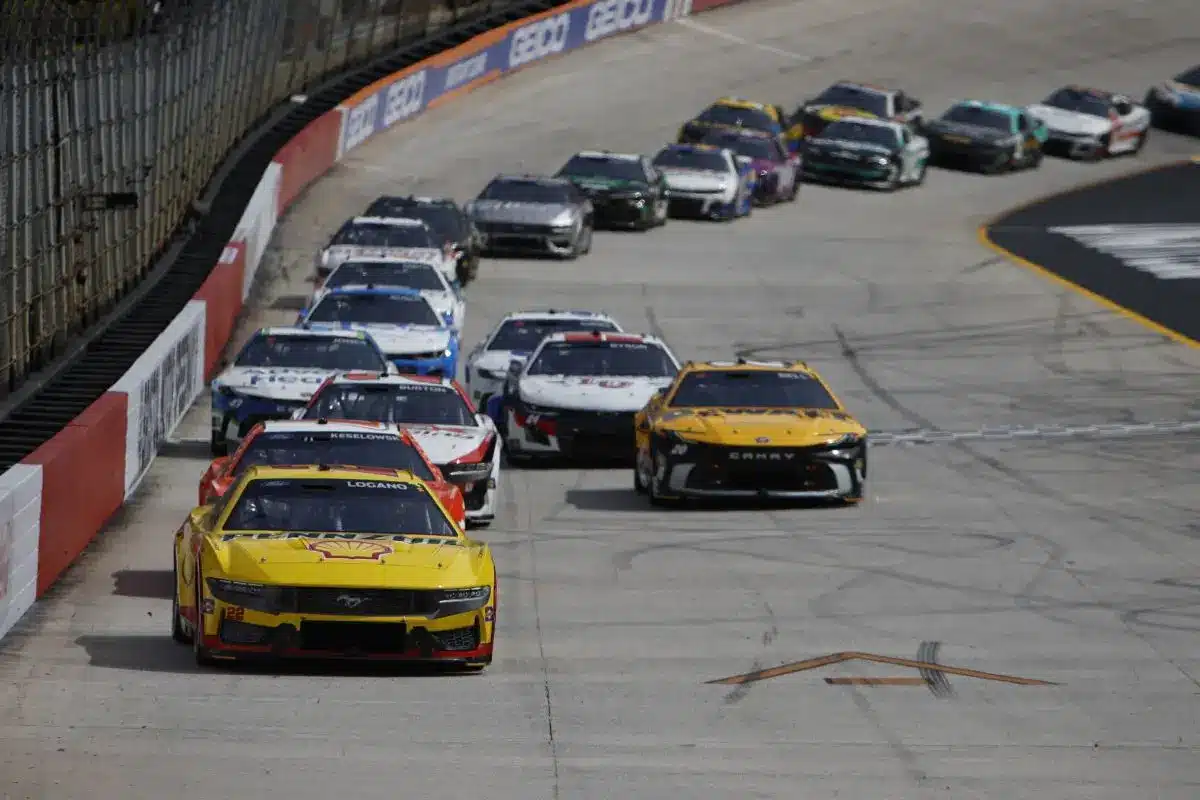NASCAR has rejected 23XI Racing‘s urgent request to expedite the lawsuit ruling regarding allegations of monopolistic practices within the organization. This decision highlights the legal complexities surrounding the case, which centers on the revised charter agreement and concerns over competitive equity. NASCAR emphasized the importance of a thorough judicial process rather than a rushed timeline, ensuring fair consideration of all arguments.
Key Highlights
- NASCAR denied the urgency of 23XI Racing’s request to expedite the lawsuit ruling process, emphasizing a thorough judicial review.
- The organization expressed concerns that a rushed timeline could compromise the quality of the legal proceedings.
- NASCAR’s decision follows a preliminary injunction request that was denied, allowing teams to compete as open teams.
- The lawsuit revolves around allegations of NASCAR’s monopolistic practices affecting team competition and the charter system.
- Attorney Jeremy Kessler highlights the importance of equitable treatment and the ongoing pursuit of charter status for teams’ competitive future.
The Rising Tensions in the 23XI Racing Lawsuit
Rising tensions surrounding the 23XI Racing lawsuit highlight substantial concerns regarding the operational dynamics within NASCAR. The ongoing legal dispute has intensified as the two teams involved have lost their opportunity to qualify as chartered teams for the 2025 season. This loss exacerbates existing frustrations, as both teams argue that NASCAR’s monopolistic practices severely limit competition within the sport.
Central to their claims is the assertion that NASCAR maintains an excessive grip on numerous aspects of the racing ecosystem. The teams point to NASCAR’s control over racetracks, exclusivity agreements, and ownership of parts and cars as evidence of detrimental monopolistic behavior. Such practices are alleged to not only disadvantage team owners and drivers but also adversely affect sponsors and fans, thereby undermining the integrity of the sport.
Moreover, NASCAR’s charter system, designed to guarantee race spots and associated prize money, has come under scrutiny. Critics argue that it disproportionately benefits NASCAR while constricting the operational flexibility of teams. This tension raises questions about the future of competition in the series and the potential for innovation and diversity among participating teams.
As the legal proceedings unfold, the implications of these tensions extend beyond the immediate participants. They pose considerable questions regarding the governance of NASCAR, the equitable distribution of resources, and the long-term viability of team participation in the sport.
NASCAR’s Response to the Lawsuit
In view of the mounting tensions surrounding the 23XI Racing lawsuit, NASCAR has responded firmly to the motion filed by 23XI and Front Row Motorsports to expedite the appeal process. The organization characterized the urgency claimed by the plaintiffs as unwarranted, asserting that requiring NASCAR to file its opening brief within a mere 12 days—including the Thanksgiving holiday—was unreasonable.
“there is … certainly no urgency that would justify Plaintiffs’ extraordinary request to require NASCAR to file its opening brief within a mere 12 days, over a period that includes the Thanksgiving holiday.”
“Plaintiffs’ proposed schedule is highly unfair to this Court: it would give the Court only one week with that briefing before oral argument.” – NASCAR
NASCAR on 23XI / FRM motion to expedite appeal: "There is … certainly no urgency that would justify Plaintiffs’ extraordinary request to require NASCAR to file its opening brief within a mere 12 days, over a period that includes the Thanksgiving holiday … (1/2)
— Bob Pockrass (@bobpockrass) November 18, 2024
NASCAR’s response illuminated several key concerns regarding the plaintiffs’ request:
- The proposed timeline disregards the necessity for thorough judicial consideration, as it allows the Court only one week to review the submitted briefs before oral arguments.
- NASCAR emphasized that the expedited schedule would not only compromise the quality of the legal process but also reflect poorly on the court’s ability to deliver a fair ruling.
- The dismissal of the urgency request suggests NASCAR’s confidence in its position, indicating a willingness to engage in a more measured legal process.
Moreover, while the teams sought a preliminary injunction to preserve their chartered team status during the ongoing legal dispute, they were ultimately denied. NASCAR’s removal of the contentious anticompetitive release requirement allows 23XI Racing and Front Row Motorsports to compete in 2025 as open teams, albeit under constrained circumstances.
Jeremy Kessler’s Update on the Lawsuit
Legal proceedings surrounding the ongoing dispute between 23XI Racing, Front Row Motorsports, and NASCAR have taken a remarkable turn, as teams prepare for the upcoming season with a clearer path forward.
Jeremy Kessler, the attorney representing 23XI and Front Row, has recently provided substantial insights regarding the current state of the lawsuit.
The legal dispute began when both teams resisted NASCAR’s revised charter agreement, citing concerns over monopolistic practices. The charter is crucial for team sustainability, offering critical guarantees related to race entries and financial incentives.
As the lawsuit progresses, Kessler announced a partial victory: NASCAR has removed an anticompetitive clause from its open team agreement. This adjustment allows 23XI and Front Row to compete as open teams, maintaining their presence on the grid while the antitrust claims unfold in court.
While this development does not fully resolve the teams’ concerns—operating as open teams presents inherent financial disadvantages—it does afford them the opportunity to continue racing without interruption.
The removal of the clause is a tactical win, reflecting the influence of legal advocacy in addressing competitive fairness in NASCAR.
As the 2025 season approaches, both teams will navigate the complexities of racing under this new framework.
Kessler’s updates highlight the ongoing legal battles that shape the landscape of NASCAR, emphasizing the importance of regulatory practices in fostering a competitive environment for all teams involved.

Kessler’s Statement and the Ongoing Battle
Kessler’s recent remarks highlight the resolve of 23XI Racing and Front Row Motorsports to advocate for equitable treatment within NASCAR. His statement encapsulates the teams’ commitment to fairness in a competitive landscape often dominated by larger entities.
Kessler emphasized, “Both race teams are pleased that they will continue to be participants in the sport they love while fighting to make it fair and just for all.” This resolve is essential, as the legal challenges they face are far from over.
The ongoing battle centers around their attempts to secure charter status for the 2025 season, a status that would greatly improve their competitive and financial standing. As they await a ruling from the 4th Circuit Court, several key points emerge:
- The teams remain steadfast in their pursuit of justice in the NASCAR ecosystem.
- Their legal strategy aims to reshape the existing framework of charter deals, potentially benefiting smaller teams in the future.
- Despite the legal hurdles, drivers like Tyler Reddick continue to exemplify excellence on the track, maintaining focus amid the ongoing saga.
As the court proceedings unfold, it is evident that both 23XI Racing and Front Row Motorsports are not merely participants in NASCAR but are actively shaping its future.
News in Brief: NASCAR Rejects 23XI Racing’s Urgent Request
The refusal of NASCAR to expedite the ruling on the 23XI Racing lawsuit emphasizes the complexities and tensions surrounding the case. As legal proceedings unfold, the implications for both the racing organization and the team remain crucial.
Jeremy Kessler’s updates indicate a protracted battle, highlighting the intricate dynamics at play within the sport. Ultimately, the outcome of this lawsuit may influence future relationships and regulatory frameworks within NASCAR, shaping the competitive landscape for years to come.
ALSO READ: 23XI Racing and FRM May Suffer Critical Losses With 2025 Charter Status in Doubt


